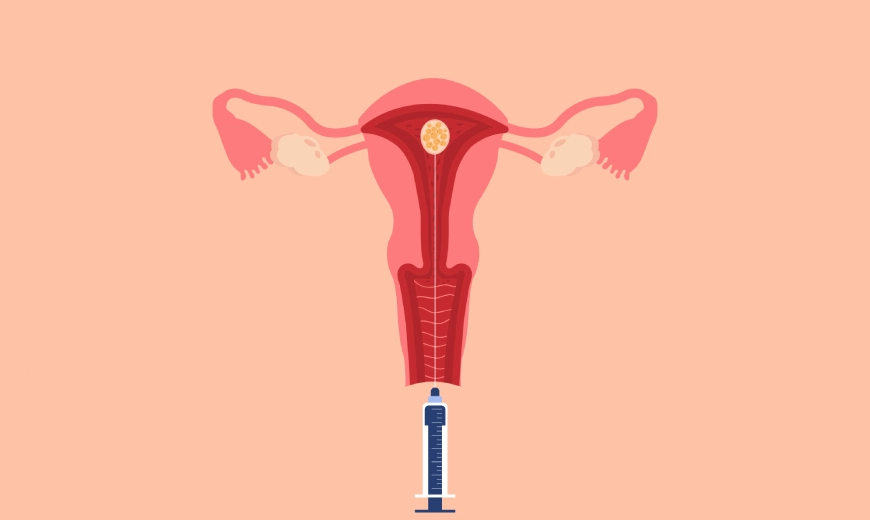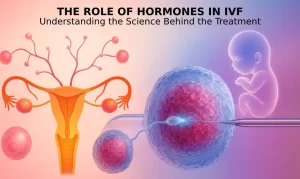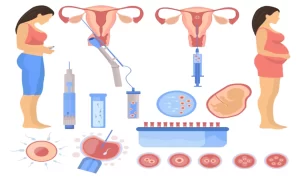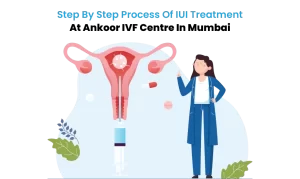The journey through In Vitro Fertilization (IVF) is filled with anticipation, hope, and a fair share of anxiety. After undergoing an IVF embryo transfer, the ten days following the procedure can be a period of heightened emotions and physical changes. Understanding what to expect during this crucial time can help you navigate the process with greater confidence and prepare for the results of your efforts. Here’s a detailed guide on what you might experience and how to manage the wait.
Key Symptoms to Watch For
Mild Cramping
Around ten days post-embryo transfer, mild cramping can occur as the embryo begins to implant into the uterine lining. This cramping is typically similar to menstrual cramps and can be a positive sign of implantation. It’s your body’s way of acknowledging the beginning of a new phase. These cramps are usually mild and should subside within a few days. If you experience intense or persistent cramping, it’s important to consult with your fertility specialist.
Spotting or Light Bleeding
Another potential sign at this stage is light spotting or a brownish discharge. This is known as implantation bleeding and can occur as the embryo settles into the uterine lining. Implantation bleeding is generally light and short-lived. It’s a normal part of the implantation process. However, if you notice heavy bleeding or if the spotting is accompanied by severe pain, it’s crucial to reach out to your fertility clinic in Mumbai to ensure everything is progressing as expected.
Breast Tenderness
Hormonal changes resulting from IVF medications and the potential onset of pregnancy can lead to breast tenderness. Your breasts might feel sore, swollen, or more sensitive than usual. This sensation is comparable to what many women experience just before their period, but it may be more pronounced during this time. Breast tenderness is a common symptom and a potential indicator of hormonal shifts in your body.
Fatigue
Increased fatigue is a common experience as your body adjusts to the hormonal changes associated with IVF. The process can be physically demanding, and your body needs extra energy to support this new phase. It’s important to listen to your body, prioritize rest, and avoid overexerting yourself. Getting plenty of sleep and taking breaks throughout the day can help manage this fatigue effectively.
Bloating
Hormonal fluctuations and the IVF process can also lead to bloating and a sensation of fullness in the abdomen. This bloating is usually mild but can be somewhat uncomfortable. It’s a temporary symptom that should gradually improve as your body adjusts. Staying hydrated and consuming a balanced diet may help alleviate some of the discomfort associated with bloating.
Nausea
Nausea is another symptom that some women may experience, although it is more common a few weeks into pregnancy rather than immediately after the embryo transfer. Mild morning sickness or queasiness can occur due to hormonal changes. If you find that the nausea is severe or persistent, it’s important to contact your fertility specialist to rule out any potential concerns.
Mood Swings
The hormonal shifts resulting from IVF can also impact your mood, leading to emotional highs and lows. These mood swings are a normal response to the significant hormonal changes your body is undergoing. Practicing stress management techniques, such as meditation, deep breathing exercises, or gentle exercise, can help mitigate some of these emotional fluctuations.
When to Contact the Best IVF Centre in Mumbai
While many symptoms are a normal part of the IVF process, it’s crucial to be aware of signs that may require immediate medical attention. Contact Ankoor Fertility Clinic the best fertility clinic in Mumbai if you experience:
- Heavy Bleeding: This could be a sign of complications and should be reported to your clinic immediately.
- Severe Cramping: Intense pain beyond mild cramping might indicate an issue.
- Severe Pain or Discomfort: Persistent or severe pain should be evaluated by a specialist.
- Signs of Infection: Symptoms such as fever, chills, or unusual discharge should be addressed promptly.
The Role of the Best IVF Centre in Mumbai
Choosing the best IVF Centre in Mumbai plays a significant role in your IVF journey. Renowned centers offer state-of-the-art facilities, experienced IVF specialists, and personalized care that can significantly impact your experience and outcomes. Ankoor Fertility Clinic – The best IVF Centre in Mumbai are known for their high success rates and comprehensive support, which can make your IVF process smoother and more reassuring.
Managing the Waiting Period
The ten-day wait after your IVF embryo transfer can be one of the most challenging periods. Here are some tips to help you manage this time effectively:
- Stay Engaged: Distract yourself with activities you enjoy to keep your mind off the waiting period.
- Follow Instructions: Adhere strictly to your doctor’s instructions regarding medications, rest, and lifestyle adjustments.
- Practice Self-Care: Engage in relaxation techniques, such as deep breathing or gentle yoga, to manage stress.
- Seek Emotional Support: Talk to your partner, friends, or a support group to share your feelings and receive emotional support.
Conclusion
The ten days following your IVF embryo transfer are a time of anticipation and hope. While symptoms can vary, understanding what to expect and staying in touch with the best IVF Centre in Mumbai can help you navigate this period with greater ease. Whether you’re experiencing mild cramping, fatigue, or mood swings, remember that these symptoms can be part of the normal process. Stay positive, follow medical advice, and take care of yourself during this critical time. Your journey through IVF is a step towards achieving your dream of parenthood, and with the right support and care, you’ll be well-prepared for the results.







